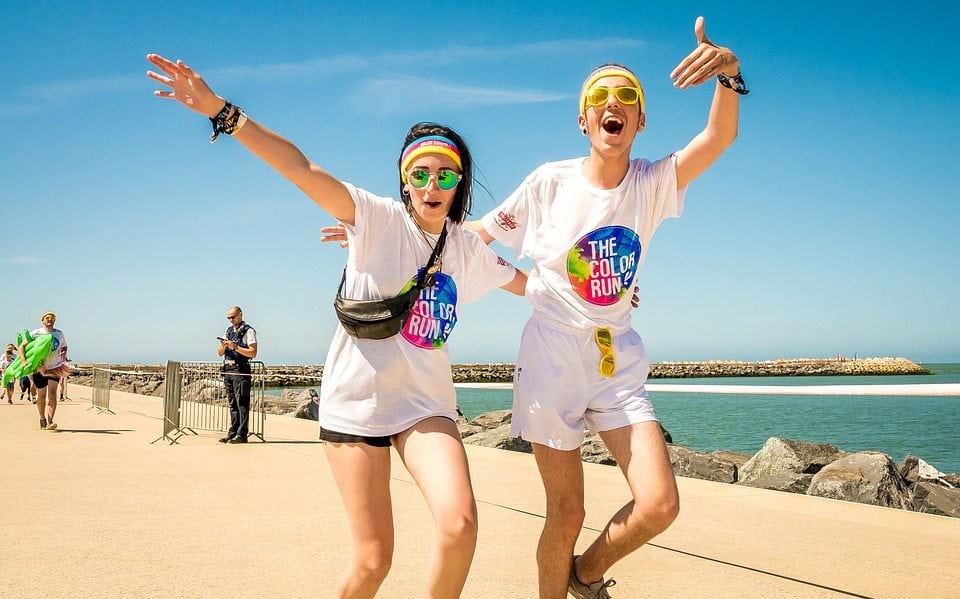
Did you notice that those who do sports are more energetic and cheerful than those who prefer lazy evenings on the couch?
What happens to the brain, when we train, and what to do if the sport is not fun?
It is known that after fitness a person feels a surge of vigor and strength. Usually this is described by a lengthy phrase: “physical activity stimulates the synthesis of hormones of happiness – endorphins.” What is really happening?
David J. Linden, a professor of neurology at the Johns Hopkins University in Baltimore, in his book Brain and Pleasure, writes that modern science can’t yet accurately answer the question of which biochemical changes in the brain are generated by physical stress. However, some experiments have shown that training is accompanied by an increased release of brain opioids. These substances play an important role in the formation of emotions, attachment, motivation, reaction to stress and pain.
Reaction of stress
In addition, physical activity also gives quick short-term effects that last 1-2 hours: increasing the pain threshold, reducing anxiety and so-called “runner euphoria”. In addition, when you begin to exercise, the body gives a reaction of stress: the pressure rises, the breathing becomes more frequent. You seem to be fighting the enemy or trying to escape from him – that’s how the brain perceives.
As a result, the body begins to produce a special protein BDNF (Brain-derived neurotrophic factor). It participates in the formation of new neural connections, due to which we feel clarity of thoughts and happiness.
Physical activity improves the quality of the muscles and the state of the cardiovascular system
Honored professor of the University of California Loretta Graziano Breuning in the book “Hormones of Happiness” explains that the synthesis of endorphin in the body is unstable. His tide can actually cause physical exercises. But doing sports before exhaustion is harmful: it is better to alternate between different loads and try new types of physical activity. So you will load different muscle groups, and you will not get tired of sports.
For example, endorphin is actively developed when doing stretching exercises. And they can be done not only in the hall, but also at home: watching a favorite TV series or talking on the phone.
In addition, the physical load heals the body globally, positively affects the human musculoskeletal system, improves the quality of muscles, and the state of the cardiovascular system. The metabolism is accelerated and the immune system is strengthened. When all the “systems work fine”, you feel better, which means, happier.
Sport is not fun
So, fitness gives joy. But there are exceptions. “Unpleasant feelings are usually associated with either poor recovery, or with the condition of” overtraining, “says Ekaterina Strelnikova, a specialist in curative physical training and sports medicine. – If you come to fitness already tired, review the schedule of the day. Perhaps you are not sleeping well: you are suffering from insomnia, a sleep intermittent, and on awakening you do not feel cheerful.
Poor recovery may be due to mismatch in nutrition levels of physical activity, imbalance in the diet, deficiency of vitamins and trace elements. Also the body does not rest because of a high level of stress. As a result, the level of cortisol increases, which, in turn, does not allow for a qualitative recovery. The state of overtraining also arises because of illiterate workload: either the power component is exceeded – the nervous system and the musculoskeletal system are overloaded, or the cardiac component is exceeded and the cardiovascular system suffers “.
A competent physical load increases life expectancy
If you have the above symptoms, it is important to establish the cause and solve the problem. The load must be within your power. We must not forget about food. If you actively train, the body needs more energy.
A competent and regular physical load affects the body at the DNA level, increasing life expectancy. Therefore it is important to train constantly, without long breaks. One or two lessons every week is better than 10 workouts every day, and then a two-month pause.
Can sports help me when I’m depressed?
Depressive states are a serious medical diagnosis. Often the reason lies in the violation of the production of special substances – neurotransmitters. And to solve the problem only through physical activity is unlikely to work. As a rule, people who are depressed are given certain pharmacological therapy.
During treatment, heavy or intensive training is not recommended: they can aggravate the situation. Physical activity is selected in a dosed and light-weight format.
But from the usual seasonal spleen workouts will definitely help. The actions of endorphins, which are produced by the body in response to physical exertion, will certainly suffice for this!
Image credit: superdirk
